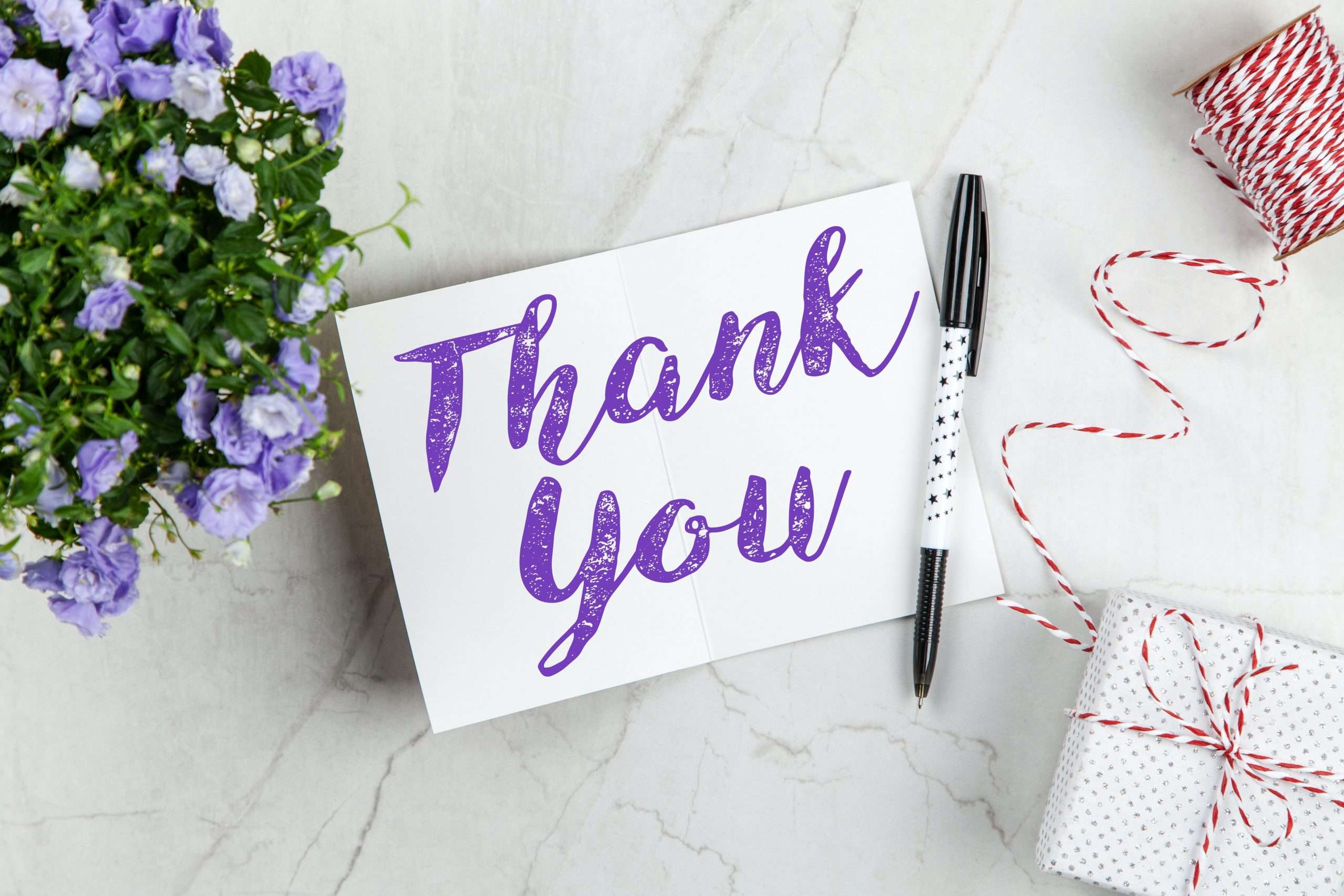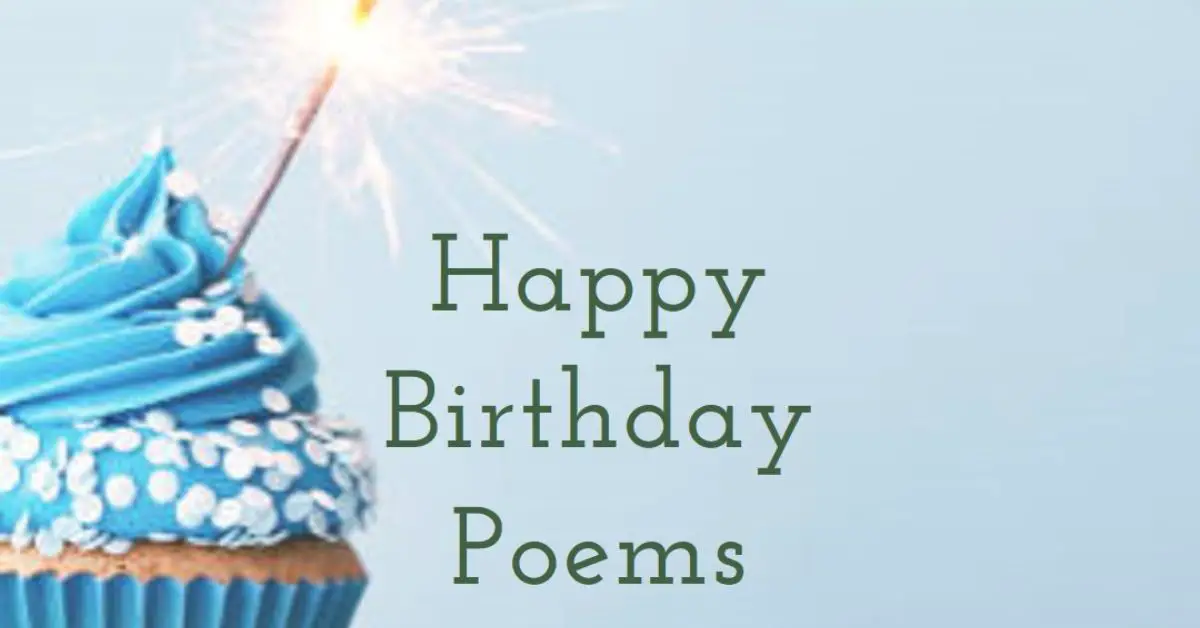Poems About Harlem Renaissance
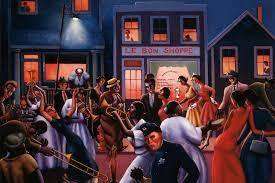
Harlem was home to the Harlem Renaissance, a time of immense creativity and cultural growth. This poetry anthology celebrates that spirit with works from some of the movement’s most celebrated voices.
Langston Hughes, Gregory Corso, Claude McKay, and Georgia Douglas Johnson were Harlem Renaissance poets who sought to define themselves and their black communities outside of white stereotypes.
Whether describing the beauty and dynamism of Harlem itself or capturing the joys and sorrows of everyday life, these poems reflect the vitality of the Harlem Renaissance era. Read on to explore some of America’s most iconic poetry.
Affiliate Disclaimer: This content contains affiliate links. When you buy through these links, I may earn an affiliate commission.
Harlem Renaissance Poetry
Poetry from the Harlem Renaissance reflected a diversity of forms and subjects. Some poets, such as Claude McKay, used culturally European forms—the sonnet was one––melded with a radical message of resistance, as in “If We Must Die.” Others, including James Weldon Johnson and Langston Hughes, brought specifically black cultural creations into their work, infusing their poems with the rhythms of ragtime, jazz, and blues.
Poets from the Harlem Renaissance
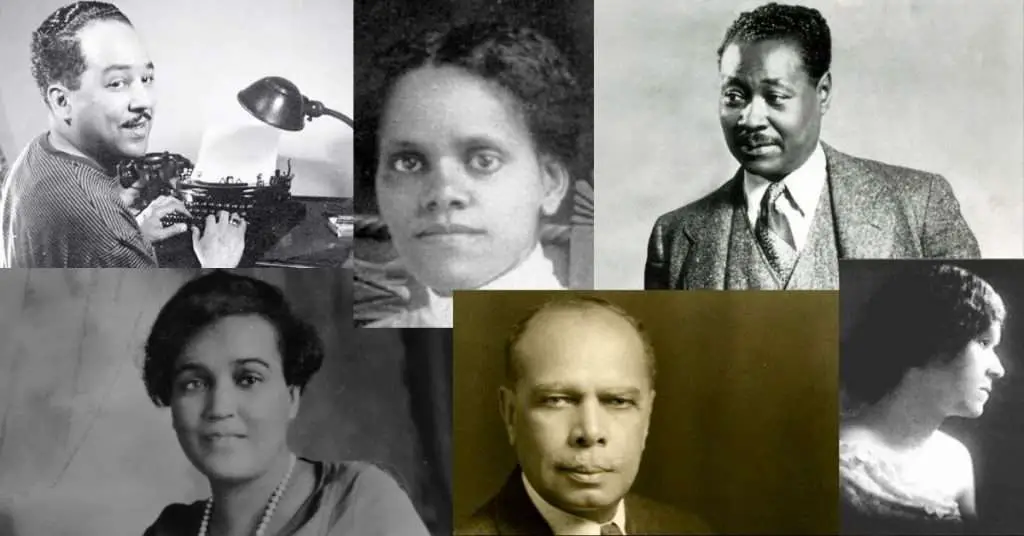
Poems about Harlem Renaissance saw the flourishing of black poets from the early 1920s through the 1930s. American black poets began to enjoy increased visibility and success during this time.
Noted black poets of the Harlem Renaissance include Langston Hughes, Claude McKay, Jean Toomer, and Countee Cullen. These poets wrote about topics ranging from African-American identity to love to politics. They also experimented with different poetic forms, such as jazz poetry and blues poetry.
The work of these black poets helped to change the landscape of American poetry and paved the way for future generations of black poets.
Oustanding Poems About Harlem Renaissance
Poems About the Harlem Renaissance: 1914-1919
The years 1914-1919 in Harlem were a time of great turmoil, with the First World War and the Great Migration both taking place. This led to a sense of dislocation and displacement among black Americans, which was reflected in the poetry of the time.
Many black poets sought to express their identities and experiences through their work. The poetry of the Harlem Renaissance was greatly influenced by the events of the time, and it continues to resonate with readers today.
1. December, 1919–by Claude McKay
Last night I heard your voice, mother,
The words you sang to me
When I, a little barefoot boy,
Knelt down against your knee.
And tears gushed from my heart, mother,
And passed beyond its wall,
But though the fountain reached my throat
The drops refused to fall.
‘Tis ten years since you died, mother,
Just ten dark years of pain,
And oh, I only wish that I
Could weep just once again.
2. To the Swimmer–by Countee Cullen
Now as I watch you, strong of arm and endurance, battling and struggling
With the waves that rush against you, ever with invincible strength returning
Into my heart, grown each day more tranquil and peaceful, comes a fierce longing
Of mind and soul that will not be appeased until, like you, I breast yon deep and boundless expanse of blue.
With an outward stroke of power intense your mighty arm goes forth,
Cleaving its way through waters that rise and roll, ever a ceaseless vigil keeping
Over the treasures beneath.
My heart goes out to you of dauntless courage and spirit indomitable,
And though my lips would speak, my spirit forbids me to ask,
“Is your heart as true as your arm?”
3. The Heart of a Woman–By Georgia Douglas Johnson
The heart of a woman goes forth with the dawn,
As a lone bird, soft winging, so restlessly on,
Afar o’er life’s turrets and vales does it roam
In the wake of those echoes, the heart calls home.
The heart of a woman falls back with the night,
And enters some alien cage in its plight,
And tries to forget it has dreamed of the stars
While it breaks, breaks on the sheltering bars.
4. Brothers-American Drama–By James Weldon Johnson
(THE MOB SPEAKS:)
See! There he stands; not brave, but with an air
Of sullen stupor. Mark him well! Is he
Not more like brute than man? Look in his eye!
No light is there; none, save the glint that shines
In the now glaring, and now shifting orbs
Of some wild animal caught in the hunter’s trap.
How came this beast in human shape and form?
Speak man!—We call you man because you wear
His shape—How are you thus? Are you not from
That docile, child-like, tender-hearted race
Which we have known three centuries? Not from
That more than faithful race which through three wars
Fed our dear wives and nursed our helpless babes
Without a single breach of trust? Speak out!
(THE VICTIM SPEAKS:)
I am, and am not.
(THE MOB SPEAKS AGAIN:)
Then who, why are you?
(THE VICTIM SPEAKS AGAIN:)
I am a thing not new, I am as old
As human nature. I am that which lurks,
Ready to spring whenever a bar is loosed;
The ancient trait which fights incessantly
Against restraint, balks at the upward climb;
The weight forever seeking to obey
The law of downward pull—and I am more:
The bitter fruit am I of planted seed;
The resultant, the inevitable end
Of evil forces and the powers of wrong.
Lessons in degradation, taught and learned,
The memories of cruel sights and deeds,
The pent-up bitterness, the unspent hate
Filtered through fifteen generations have
Sprung up and found in me sporadic life.
In me the muttered curse of dying men,
On me the stain of conquered women, and
Consuming me the fearful fires of lust,
Lit long ago, by other hands than mine.
In me the down-crushed spirit, the hurled-back prayers
Of wretches now long dead—their dire bequests.
In me the echo of the stifled cry
Of children for their battered mothers’ breasts.
I claim no race, no race claims me; I am
No more than human dregs; degenerate;
The monstrous offspring of the monster, Sin;
I am—just what I am. . . . The race that fed
Your wives and nursed your babes would do the same
Today. But I—
(THE MOB CONCLUDES:)
Enough, the brute must die!
Quick! Chain him to that oak! It will resist
The fire much longer than this slender pine.
Now bring the fuel! Pile it round him! Wait!
Pile not so fast or high! or we shall lose
The agony and terror in his face.
And now the torch! Good fuel that! the flames
Already leap head-high. Ha! hear that shriek!
And there’s another! wilder than the first.
Fetch water! Water! Pour a little on
The fire, lest it should burn too fast. Hold so!
Now let it slowly blaze again. See there!
He squirms! He groans! His eyes bulge wildly out,
Searching around in vain appeal for help!
Another shriek, the last! Watch how the flesh
Grows crisp and hangs till, turned to ash, it sifts
Down through the coils of chain that hold erect
The ghastly frame against the bark-scorched tree.
Stop! to each man no more than one man’s share.
You take that bone, and you this tooth; the chain,
Let us divide its links; this skull, of course,
In fair division, to the leader comes.
And now his fiendish crime has been avenged;
Let us back to our wives and children—say,
What did he mean by those last muttered words,
“Brothers in spirit, brothers in deed are we”?
Poems About the Harlem Renaissance: 1920-1924
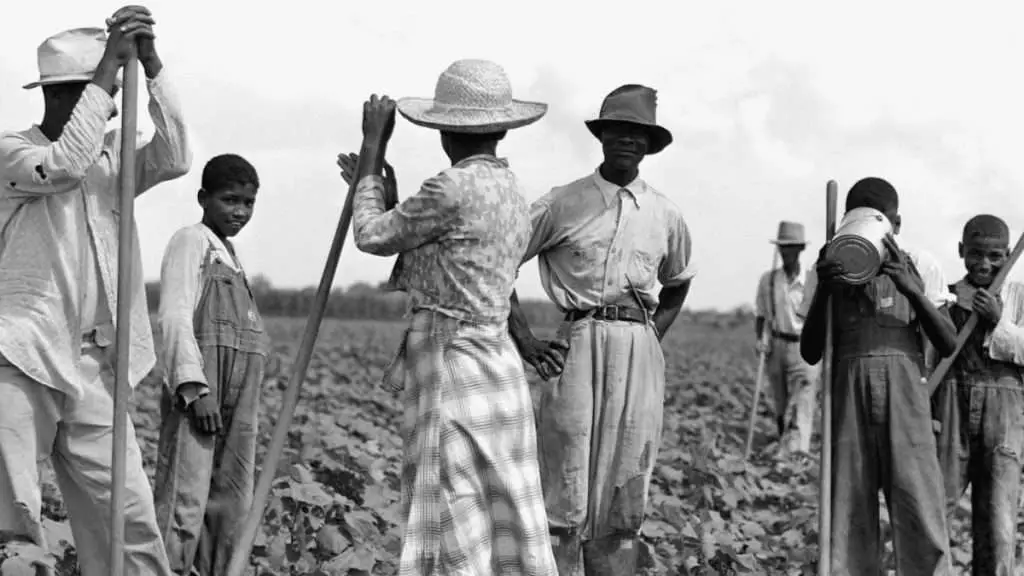
The Harlem Renaissance was a golden age for black poets in America. Between 1920 and 1924, black poets such as Anne Spencer and Jean Toomer came to prominence, producing works that were influential both within the black community and beyond.
These poems helped to redefine what it meant to be black in America, and they continue to resonate today. The black poets who wrote poems about the Harlem Renaissance were not only influenced by the period in which they lived but also by the long history of black poetry in America. From Phillis Wheatley to Paul Laurence Dunbar, these poets drew on a rich tradition of black American poetry to create works that are essential parts of our shared American history.
5. The Wonderful Morning–By Fenton Johnson
From “Two Negro Spirituals”
WHEN it is morning in the cornfield
I am to go and meet my Jesus
Riding on His white horse.
When it is morning in the cornfield
I am to be there in my glory.
Shout, my brethren! Shout, my sisters!
I am to meet the King of Morning
Way down in the cornfield.
6. Simon the Cyrenian Speaks–By Countee Cullen
He never spoke a word to me,
And yet He called my name;
He never gave a sign to me,
And yet I knew and came.
At first I said, “I will not bear
His cross upon my back;
He only seeks to place it there
Because my skin is black.”
But He was dying for a dream,
And He was very meek,
And in His eyes there shone a gleam
Men journey far to seek.
It was Himself my pity bought;
I did for Christ alone
What all of Rome could not have wrought
With bruise of lash or stone.
Poems About the Harlem Renaissance: 1925-1929
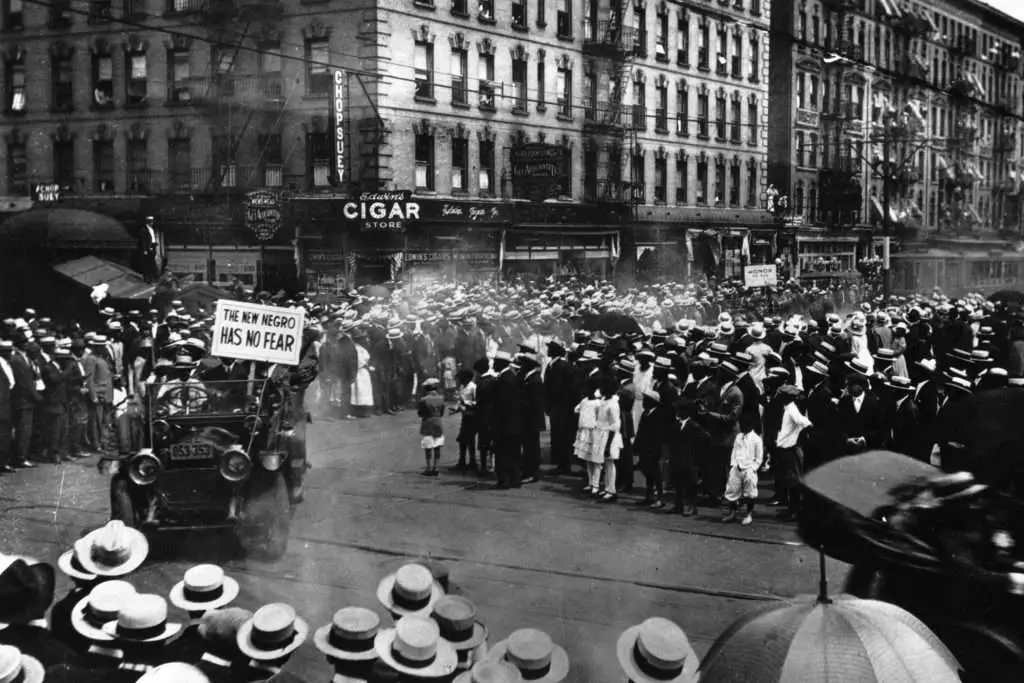
The Harlem Renaissance was a time of great creativity and productivity for black poets. Many of the most iconic poems about the Harlem Renaissance were written during this period. These poems helped to capture the spirit of the times and gave voice to the black experience.
In addition to these well-known poems, there are many other lesser-known black poets who also wrote about the Harlem Renaissance. Their work helps to paint a more complete picture of this important time in history. By reading these poems, we can better understand the black experience during the Harlem Renaissance and gain a greater appreciation for the black literary tradition.
7. No Images–By William Waring Cuney
She does not know
her beauty,
she thinks her brown body
has no glory.
If she could dance
naked
under palm trees
and see her image in the river,
she would know.
But there are no palm trees
on the street,
and dish water gives back
no images.
8. Brass Spittoons–By Langston Hughes
Clean the spittoons, boy.
Detroit,
Chicago,
Atlantic City,
Palm Beach.
Clean the spittoons.
The steam in hotel kitchens,
And the smoke in hotel lobbies,
And the slime in hotel spittoons:
Part of my life.
Hey, boy!
A nickel,
A dime,
A dollar,
Two dollars a day.
Hey, boy!
A nickel,
A dime,
A dollar,
Two dollars
Buy shoes for the baby.
House rent to pay.
Gin on Saturday,
Church on Sunday.
My God!
Babies and gin and church
And women and Sunday
All mixed with dimes and
Dollars and clean spittoons
And house rent to pay.
Hey, boy!
A bright bowl of brass is beautiful to the Lord.
Bright polished brass like the cymbals
Of King David’s dancers,
Like the wine cups of Solomon.
Hey, boy!
A clean spittoon on the altar of the Lord.
A clean bright spittoon all newly polished—
At least I can offer that.
Com’mere, boy!
9. Threnody for a Brown Girl–By Countee Cullen
Weep not, you who love her
What rebellious flow
Grief undams shall recover
Whom the gods bid go?
Sorrow rising like a wall,
Bitter, blasphemous
What avails it to recall
Beauty back to us?
Think not this grave shall keep her,
This marriage-bed confine;
Death may dig it deep and deeper
She shall climb it like a vine.
Body that was quick and sentient,
Dear as thought or speech,
Death could not, with one trenchant
Blow, snatch otut of reach!
She is nearer than the word
Wasted on her now,
Nearer than the swaying bird
On its rhythmic bough.
Only were our faith as much
As a mustard seed,
Aching hungry hands might touch
Her as they touch a reed.
Life, who was not loth to trade
Her unto death, has done
Better than he planned, has made
Her wise as Solomon.
Now she knows the Why and Wherefore,
Troublous Whence and Whither;
Why men strive and sweat, and care for
Bays that droop and wither.
All the stars she knows by name,
End and origin thereof,
Knows if love be kin to shame,
If shame be less than love.
What was crooked nlow is str-aight,
What was rough is plain;
Grief and sor-row have no weight
Now to cause her pain.
One to her are flame and frost;
Silence is her singing lark.
We alone are children-lost,
Crying in the dark.
Varied features now, and form
Change has bred upon her;
Crush no bug or nauseous worm
Lest you tread upon her.
Pluck no flower lest she scream;
Bruise no slender reed
Lest it prove more than it seem,
Lest slhe groan and bleed.
More than ever trust your brother,
Read him golden, pure
It may be she finds no other
House so safe and sure.
Set no poet carving
Rhymes to make her laugh;
Only live he-arts starving
Need an epitaph.
Lay upon her no white stone
From a foreign quarry;
Earth and sky, be these alone
Her obituary.
Swift as startled fawn or swallow,
Silence all her sound,
She has fled; we cannot follow
Further than this mound.
We who take the beaten track,
Trying to appease
Hearts near breaking with their lack,
We need elegies.
Poems About the Harlem Renaissance: 1930-1940
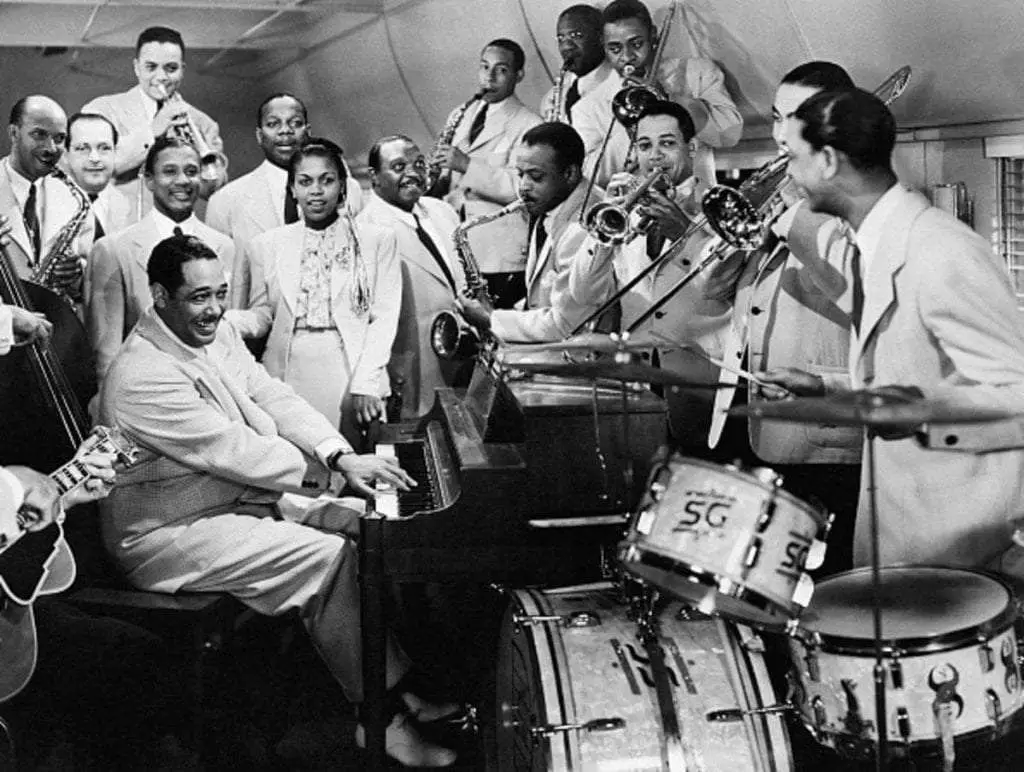
The 1930s were a cruel time for Harlem. Social unrest manifested in the area, and unemployment and municipal neglect made things worse. Many black poets wrote about their experiences growing up in the segregated south, and their poems quickly became popular among both black and white readers.
These poems about Harlem Renaissance helped to shed light on the struggles of black Americans living in inner-city neighborhoods. They also helped to promote black pride and celebrate black culture. Today, the poems about the Harlem Renaissance are still some of the most famous and influential pieces of black poetry.
10. A Poet to His Baby Son–By James Weldon Johnson
Tiny bit of humanity,
Blessed with your mother’s face,
And cursed with your father’s mind.
I say cursed with your father’s mind,
Because you can lie so long and so quietly on your back,
Playing with the dimpled big toe of your left foot,
And looking away,
Through the ceiling of the room, and beyond.
Can it be that already you are thinking of being a poet?
Why don’t you kick and howl,
And make the neighbors talk about
“That damned baby next door,”
And make up your mind forthwith
To grow up and be a banker
Or a politician or some other sort of go-getter
Or—?—whatever you decide upon,
Rid yourself of these incipient thoughts
About being a poet.
For poets no longer are makers of songs,
Chanters of the gold and purple harvest,
Sayers of the glories of earth and sky,
Of the sweet pain of love
And the keen joy of living;
No longer dreamers of the essential dreams,
And interpreters of the eternal truth,
Through the eternal beauty.
Poets these days are unfortunate fellows.
Baffled in trying to say old things in a new way
Or new things in an old language,
They talk abracadabra
In an unknown tongue,
Each one fashioning for himself
A wordy world of shadow problems,
And as a self-imagined Atlas,
Struggling under it with puny legs and arms,
Groaning out incoherent complaints at his load.
My son, this is no time nor place for a poet;
Grow up and join the big, busy crowd
That scrambles for what it thinks it wants
Out of this old world which is—as it is—
And, probably, always will be.
Take the advice of a father who knows:
You cannot begin too young
Not to be a poet.
11. Sailor–By Langston Hughes
He sat upon the rolling deck
Half a world away from home,
And smoked a Capstan cigarette
And watched the blue waves tipped with foam.
He had a mermaid on his arm,
An anchor on his breast,
And tattooed on his back he had
A blue bird in a nest.
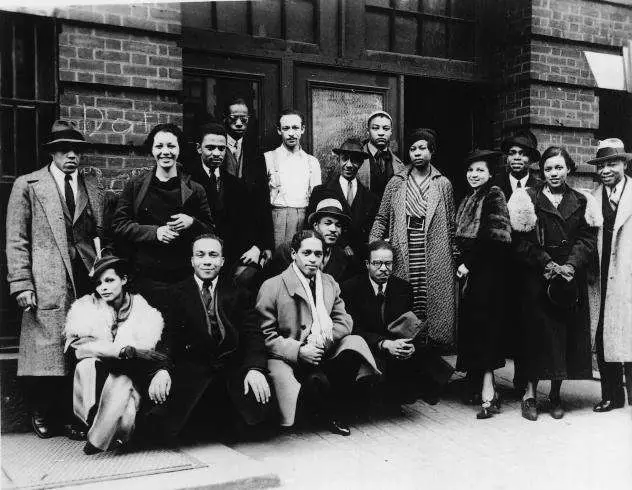
Conclusion
In conclusion, poems about Harlem Renaissance shared in this post represent a time of great change and growth for African Americans. These poems reflect the beauty, pain, and power of that time period. If you’re interested in reading more about the Harlem Renaissance, be sure to check out some of the links below.
Further Reading:
7 Poets of the Harlem Renaissance
The Poets in the Harlem Renaissance
The Poetry of Langston Hughes
